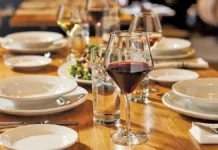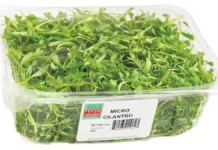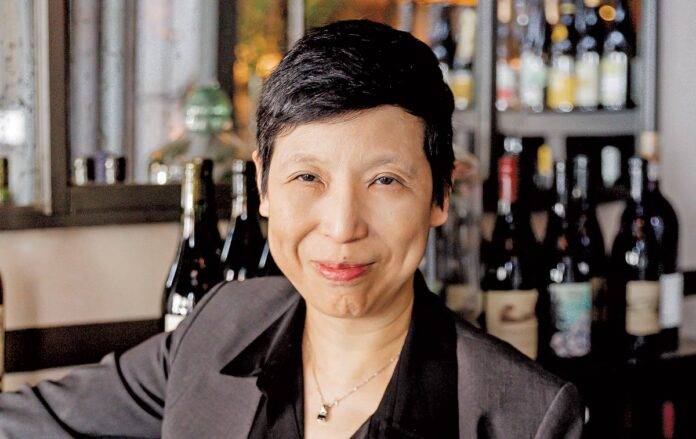
Restaurateur & Co-Founder and Owner, High Street Hospitality Group
Heralded as one of Philadelphia’s most ingenious restaurateurs, Ellen Yin has certainly established herself in the culinary industry. Her numerous James Beard Outstanding Restaurateur nominations attest to her success as a founding member of High Street Hospitality Group whose portfolio includes many acclaimed restaurants such as High Street and a.kitchen + bar.
A native of New Jersey and a second-generation American, Ellen Yin knew even from a young age that she wanted a career in the food industry. Armed with an incessant passion for service and a business school degree, Yin opened her first restaurant, Fork, in Philadelphia in 1997. Alongside her talented team – which includes many chefs who themselves have received James Beard nominations and her long-time business partner Eli Kulp – and her twenty-odd years of experience in fields including healthcare, consulting, and cuisine, she transformed Fork, and later HSHG, into a renowned culinary institution.
Lately, Ellen has expanded her vision beyond the walls of the kitchen to include the communities in which she works. Her membership in organizations such as Sisterly Love Collective, which is an alliance empowering female entrepreneurs and restaurateurs in Philadelphia, is a testament to her drive to not only support her team, but those around her.
As the food services industry continues to endure pandemic-related hardships, Ellen Yin provides insight into her success, her charity, and the future of the restaurant.
Where did you grow up? What was family life like for you?
I was born in Santa Clara, California, moved to New Jersey, and spent most of my childhood years in a small little town by the shore in Monmouth County. I’m the child of immigrant parents who wanted me to succeed, but I was one of those black sheep, because I excelled in school but always wanted to do something against the grain. My mother was an incredible cook and entertainer, so we always had great food around us and food was the centerpiece of every holiday.
What spurred your passion and love for food and cooking?
When I was 14, I got my first job at a little Chinese restaurant in my hometown, and when I gained the confidence, I went to the French restaurant around the corner called The Fromagerie because I thought, I want to do more. The Fromagerie at that time – this was the 80s and, in its heyday, hosted people like Jacques Pépin and Julia Child. The Peter Brothers, who founded the Fromagerie, taught me everything I know, and I fell in love with everything about service and hospitality.
I started as a busgirl at the Fromagerie, but they trained me as a server, bartender, coat-check attendant, I was everything. I knew in my mind that I wanted to open a restaurant, but my parents discouraged me and made sure that I had a backup plan. When I graduated from the University of Pennsylvania, I had written a business plan for a restaurant, but then realized that there was no way I could open my own restaurant at the age of 23, so I resigned myself to looking for a job. I worked in advertising, then in non-profit fundraising, but still always felt that none of these jobs were as satisfying as working in the restaurant industry.
I got to a point in my career where I was either going to be fired or have to go back to school, so I took the school route. I kept thinking, Whatever I do, I am going to keep preparing myself to open a restaurant, and got an MBA in Healthcare Management from the Wharton School. You know, in my high school days, in addition to being a busgirl, I was a candy striper. I do love caring for people, and serving people, so it made perfect sense considering healthcare and hospitality are aligned. I ended up being in debt, and I figured I better try consulting or investment banking, because if I didn’t, I might regret it. I stayed with this path until I was able to open my own restaurant.
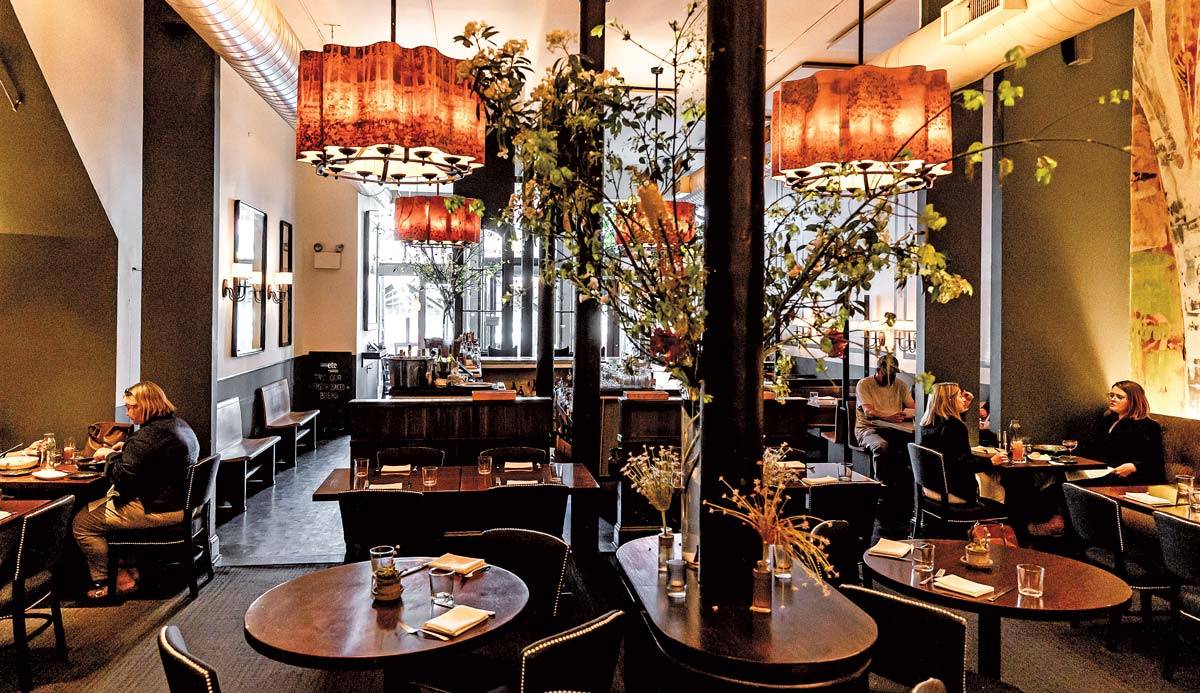
How did High Street come together?
I was looking for a new chef, and I was introduced to Eli Kulp and was completely blown away by his cooking. He wanted to make a name for himself and thought that rebranding an iconic restaurant would also be to his benefit, so he became the chef at Fork.
We had already grown to the restaurant next door called Fork, etc. which was a prepared foods place, but it could never get a dinner vibe going because it looked like a daytime establishment. Eli was very excited to try to make that into a chef-driven boutique restaurant. After getting great reviews at Fork and finishing our reinvention, we did a major renovation of the dining room and set forth on trying to figure out what to do with the space next door. In 2014, we ended up meeting Alex Bois, a very talented young baker, and Jon Nodler and Sam Kincaid, and that core group became the start of High Street Hospitality Group. The five of us really helped to create a concept for High Street that was what we wanted: craft-driven, artisanal, authentic food. Soon after, High Street was named Bon Appetit’s Number Two Best Restaurant, and our business exploded.
Eli also wanted to go back to New York to open a restaurant, and so we decided we were going to open High Street on Hudson. We raised the money, found a location, and then his accident happened, and that changed the momentum of our group for the next five years. I’m really happy to say that he has this incredible podcast, he does a lot of programming, and we still consult together, and of course, he’s still a partner. I grew tremendously because when Eli came, I learned a lot from him. In his absence, during his physical recovery, a lot of us had to step up more.
Can you talk about programs such as the Sisterly Love Collective?
The Sisterly Love Collective came out of the pandemic. We have a leadership team that is responsible for trying to identify and create opportunities. But we have more young entrepreneurs in the start-up and development/growth phase than we do people like myself, and I think that’s where we thrive, trying to create mentorship opportunities. We’re trying to develop an accelerator program and raise money to give women access to capital they have not had.
We’re working on a couple of events coming up, but they’re mostly to try to increase the reach of our cause and fundraise. We raised $25,000 last month for Women Against Abuse and still managed to pay every woman who provided food at the event, so we’re very proud of how we’re doing and how we’re advocating for that problem.
What do you enjoy doing in your spare time?
I do love what I do, so I don’t really think of it as work, per se. So much of what we do is community-driven. We had an event for the Delaware River Waterfront Corporation; their vision was to create a waterfront that was accessible to Philadelphians, and being a part of that process over the past ten years is very redeeming, so I include that as work even though that’s how I spend my spare time. That and Sisterly Love. I love it. I love seeing people grow; for me, that’s great. In terms of relaxing, I’m going on vacation for the first time since the pandemic. I love what everybody else loves: to travel, try new places, and meet new people.
How did High Street survive the pandemic? Are takeout and delivery something to which your business adapted during the pandemic?
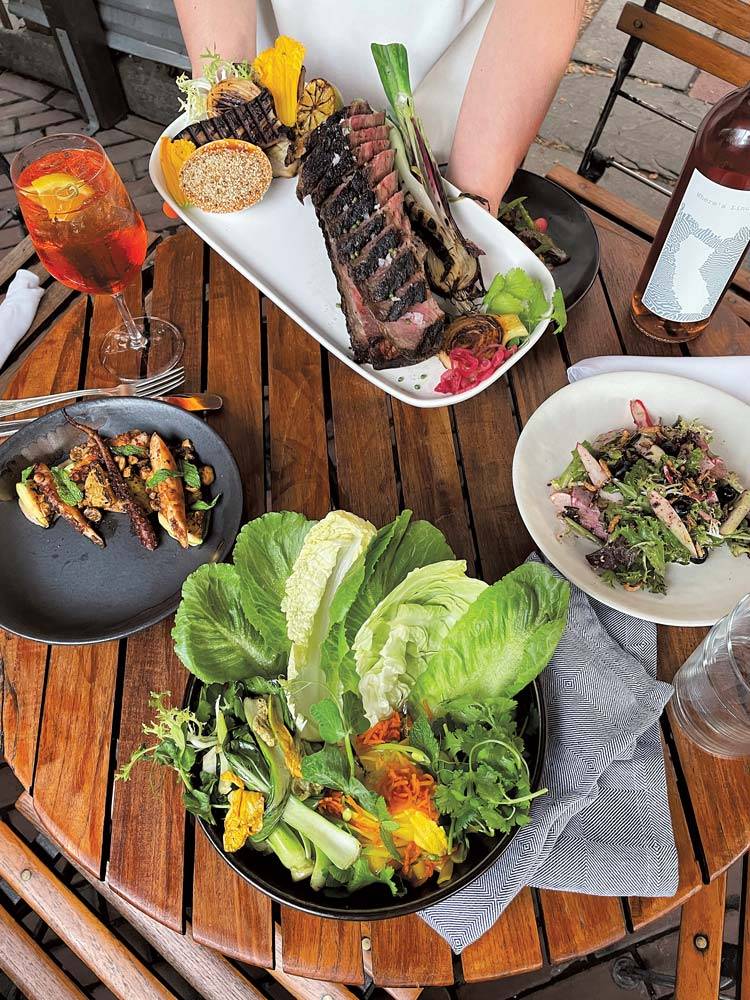
envelope of dining in Philadelphia. (Tablescape photo by High Street Hospitality)
Well, we’re open! We have one quick-serve operation that is exclusively takeout and delivery, but High Street, the daytime program in particular, lent itself to takeout and delivery, so we were kind of equipped for that. Fork, on the other hand, doesn’t do takeout and delivery. During the pandemic, the team was a little frustrated because we tried to do staff meals that were like family meals, but that wasn’t what people were looking for. Someone came up to me and said, “If we make a donation, would you make meals?” We raised close to $150,000 to help support frontline worker meals, and over the course of two months, we made nearly 10,000 meals. The only thing I regret is that I didn’t use that money to create a bigger program.
What do you think the “new normal” will look like? Is there a lot of retail space available that might not have been before?
I think it’s market-by-market and neighborhood-by-neighborhood. I do think that there’s opportunity but maybe not in the same way as before. In New York City, for example, the rental rates are not that much lower, but maybe you can strike up a deal to do a different type of model that might need less real estate because you’re thinking of your business in a different way.
It depends on risk, too. There are certainly people shopping, there are a lot of spaces that you can strike a great deal for, and there are great spaces that are still going to be recognized as such and be costly. I’ve been so lucky because most of my opportunities have come from collaboration with people. My colleagues at a.kitchen have reinvented themselves and are growing again, and I was able to work with them during the pandemic to relocate High Street, and we reopened in a 500 sq/ft space with our entire bread-baking operation. Now we’re considering growing into the space that was a full-fledged restaurant. I have to be more creative because it’s in a unique location that’s right by Jefferson Hospital, so there’s not much nighttime business but the hospital is there and the employees are not remote, so I have to think of it a little differently.
How do you feel about your James Beard Restaurateur of the Year Nomination?
Obviously, it’s a tremendous honor. I’m not the type of person who seeks out recognition, but it means a lot for our group, for my team members who have worked tirelessly during the pandemic to have our entire group recognized. Really, Outstanding Restaurateur is about the organization and the team, and so it meant a lot to all of them, and I know they were all very excited.
Was your success completely self-motivated? Who were important mentors to you, and how did they impact your career?
I’m sure it’s a little bit of both, mentorship is one of those funny little words. Sometimes a mentor is someone you spend a lot of time with, other times a mentor is someone who goes in and out of your life. I’ve always maintained really positive relationships with everybody. I would say that nobody could talk me out of opening a restaurant as that passion and desire were always there. I watched carefully everything that would happen at the restaurants where I worked, but I wouldn’t really say that any of the people that I worked for were really mentors. I would say that they were really the people who gave me an opportunity.
I had a very entrepreneurial spirit, which is why I call myself the black sheep of the family; my brothers and father were all engineers. I would never really follow what others told me, I always tried to figure it out myself. My mentor in my healthcare job just threw me into the woods, and I really had to figure everything out myself. I’ve always been that kind of person. Over time, I’ve developed mentors, people who may be in the industry. Other entrepreneurs that I’ve worked with, who’ve given me advice and who I’ve built trust with.
Any thoughts on expansion beyond Philadelphia… maybe returning to New York at some point?
I get calls all the time about expanding, but I want to do it in the smart way. I’ve been in business for 25 years, so I want to start thinking about how all of this can benefit my leadership team in the future. I think that our main growth strategy is looking at the High Street model and thinking about how to commissary the bread and open satellites in different neighborhoods. But at the same time, that goes against our concept of being artisanal and a small, producer-driven restaurant. Obviously, we’re focusing on managing risk during this time period and being smart about expansion.
To learn more about Ellen Yin and High Street Hospitality’s restaurants, visit their website.






















